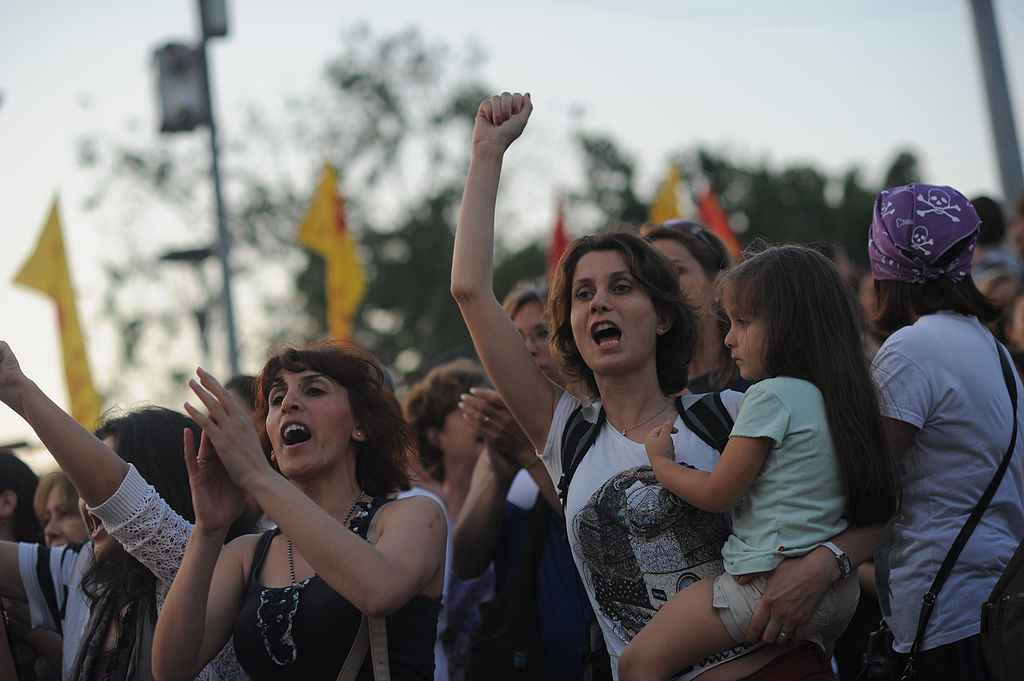The summer of 2013 has seen a spate of social unrest episodes across the emerging market space. The riots had two things in common. First, they were sparked by a government decision affecting daily life. In Turkey, it was the government’s decision to change the use of Istanbul’s landmark Taksim Square; in Brazil, it was the decision to hike bus fares; and in Bulgaria and Indonesia, it was higher electricity and fuel prices, respectively. Second, protesters are not affiliated with political parties or movements, and they are well educated members of the middle class.
This was not the first time that the middle class has been at the epicenter of social unrest. The now developed economies suffered a spate of social unrest during the “long nineteenth century”,when the rise of a middle class of traders, entrepreneurs and better educated people fuelled demand for better living standards and more representation in political governance.
This report, signed by Manolis Davradakis, Senior Emerging Economist, AXA Investment Managers, attempts to examine the root causes of the recent episode of social unrest in emerging markets and rank the various emerging economies on the basis of their performance in the area of institutional governance, which matters a lot to the middle class.
The middle class revolution
The world’s middle class is growing and is expected to continue to do so. It is expected to become more populous compared to the poor by 2022, with its size climaxing at 4.9bn people by 2030, doubling its size in 2009, according to the European Union Institute for Security Studies. Middle classes will grow the most in Emerging Asia, followed by Sub-Saharan Africa, MENA and Central and South America (Exhibit 3).
Indeed, high levels of economic development render people more open-minded, leading to more emphasis on self-expression and more participation in the decision-making process.Knowledge societies cannot function effectively without highly educated citizens who are accustomed to thinking for themselves. Beyond a certain point, repressing mass demands for a more open society becomes costly and economically ineffective. Government unwillingness to acknowledge the people’s right to freedom of expression and a voice in decision-making is a source of social unrest.
Everyday problems all the same
As more people join the ranks of the middle class, existing institutional structures prove to be unable to accommodate the aspirations of members of this class for swift economic and social advancement. Middle class members realize that although they earn more now and are wealthier than before, they still face the same malaises as the poorer strata of the population
The crime rate in several emerging markets overshoots that of OECD countries by a large margin. Indeed, the homicide rate is the highest in South Africa, Mexico and Brazil, all three members of the G20 (Exhibit 4).
High crime rates force people to spend a large share of their income to protect themselves and their properties, diverting funds from more productive uses and impeding entrepreneurship.
Also, public spending for education and health care are lagging behind in emerging compared to developed economies.
Investment implications
Social unrest may have implications for emerging market ratings. Specifically, the combination of the current account deficit widening, foreign capital outflows in the aftermath of US Federal Reserve’s QE tapering off, and prolonged social unrest could result in Turkey’s sovereign credit rating outlook and Brazil’srating being downgraded.
Fitch has warned that poorly handled enduring social unrest could put Turkey’s investment grade at risk, while Moody’s has stated that a spike in political risk is a rating negative event. We believe that the two rating agencies will most likely opt for an outlook downgrade at first to prevent the reputation damage that would emerge should they relinquish the investment grade less than a year after receiving it.
The rating action on Brazil could imply a sovereign rating downgrade, most likely by Standard and Poor’s, which downgraded the country’s outlook to Negative in June 2013. In Brazil’s case, rating agencies do not face the same reputation risk that they face in Turkey. A rating action could take place by end- August, within the two-month period after the outlook change by Standard and Poor’s.



